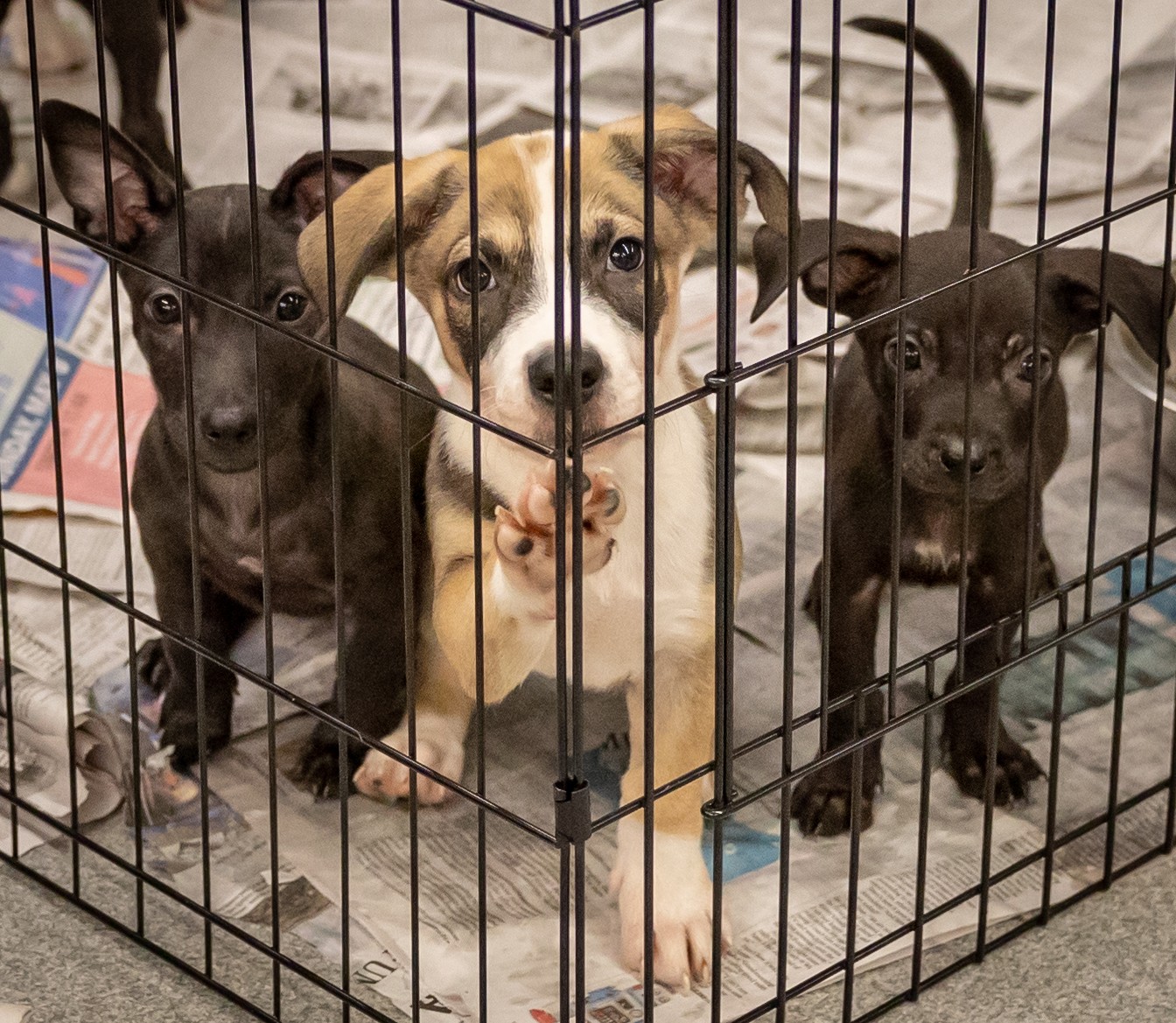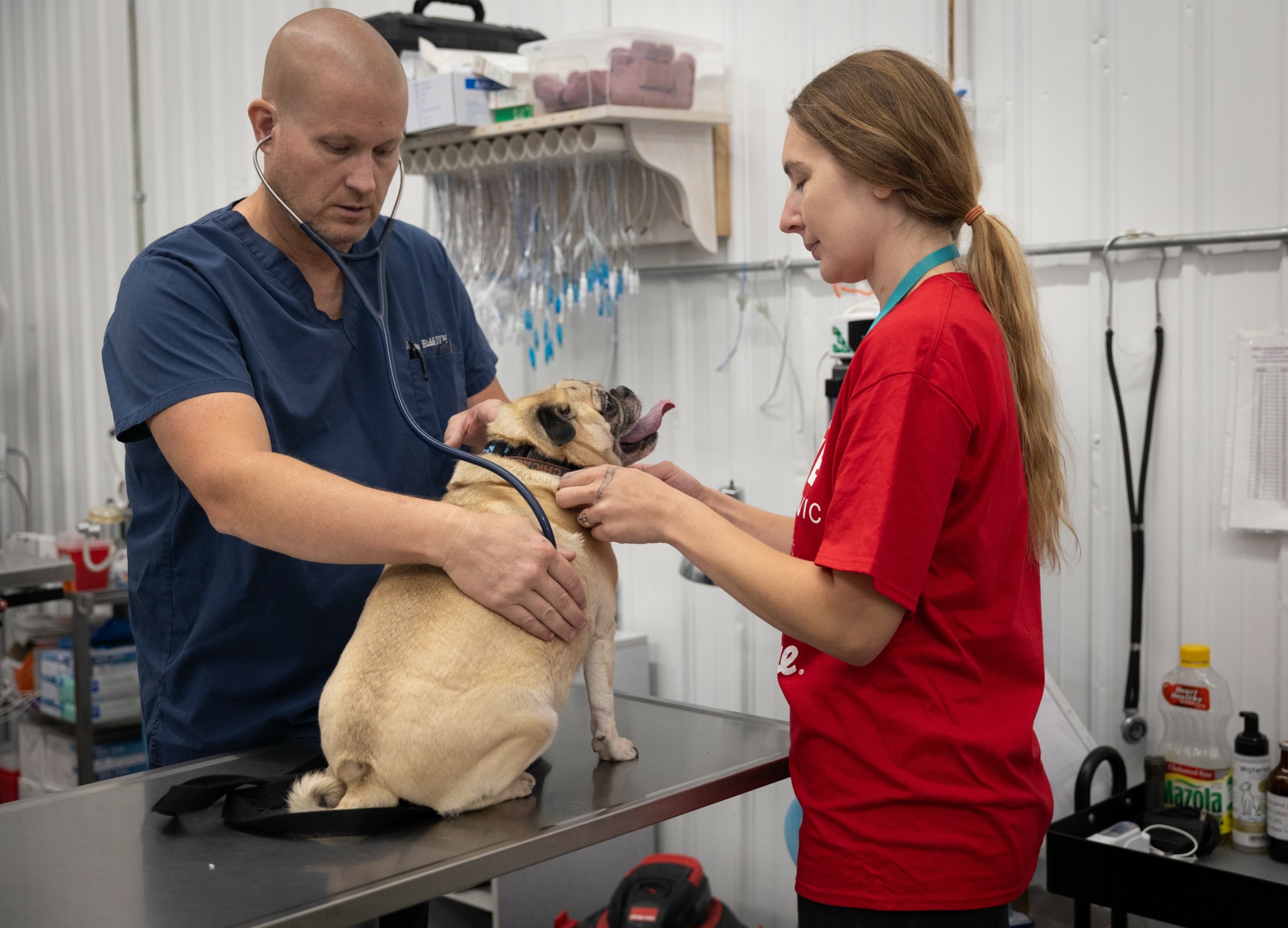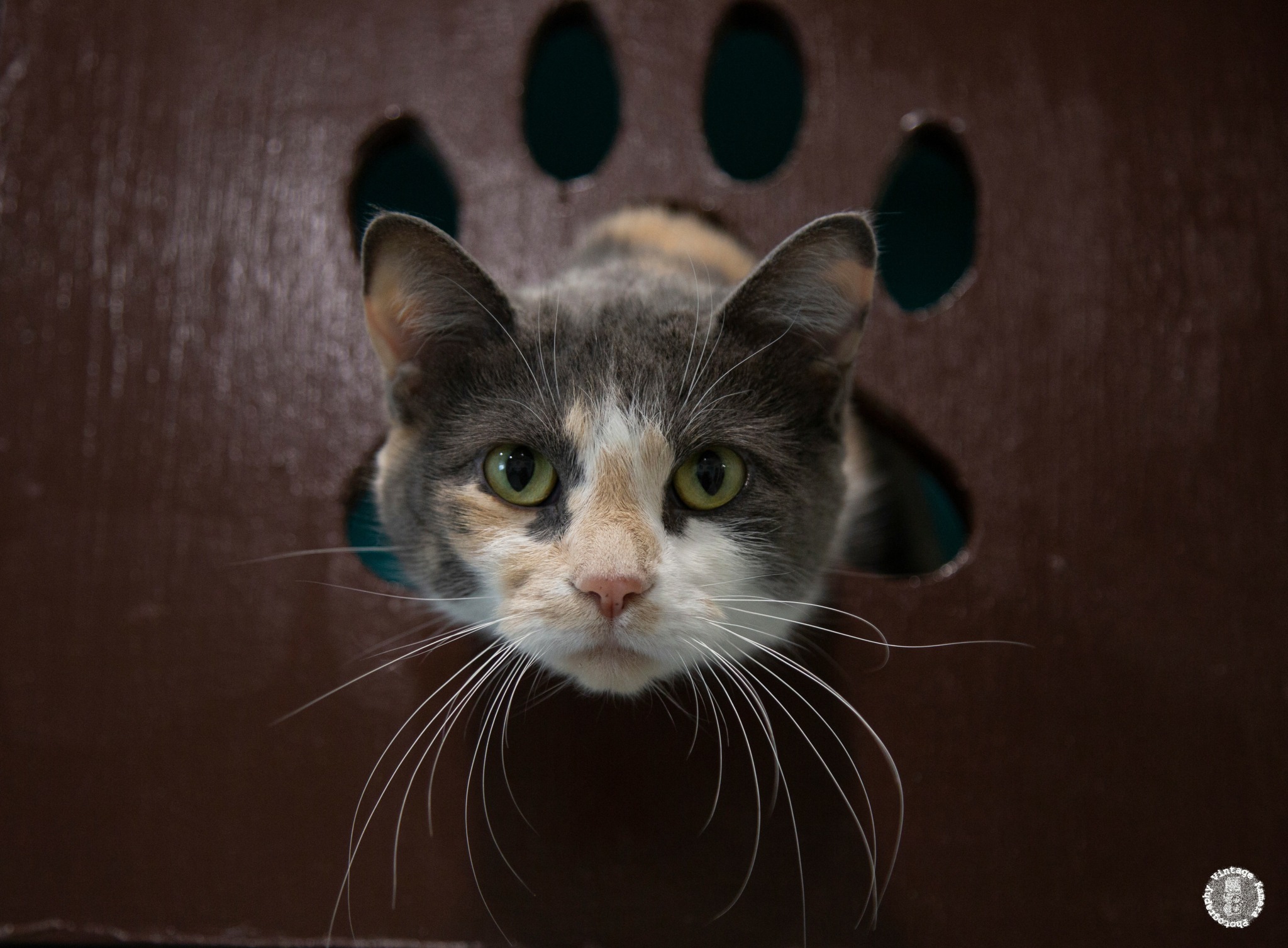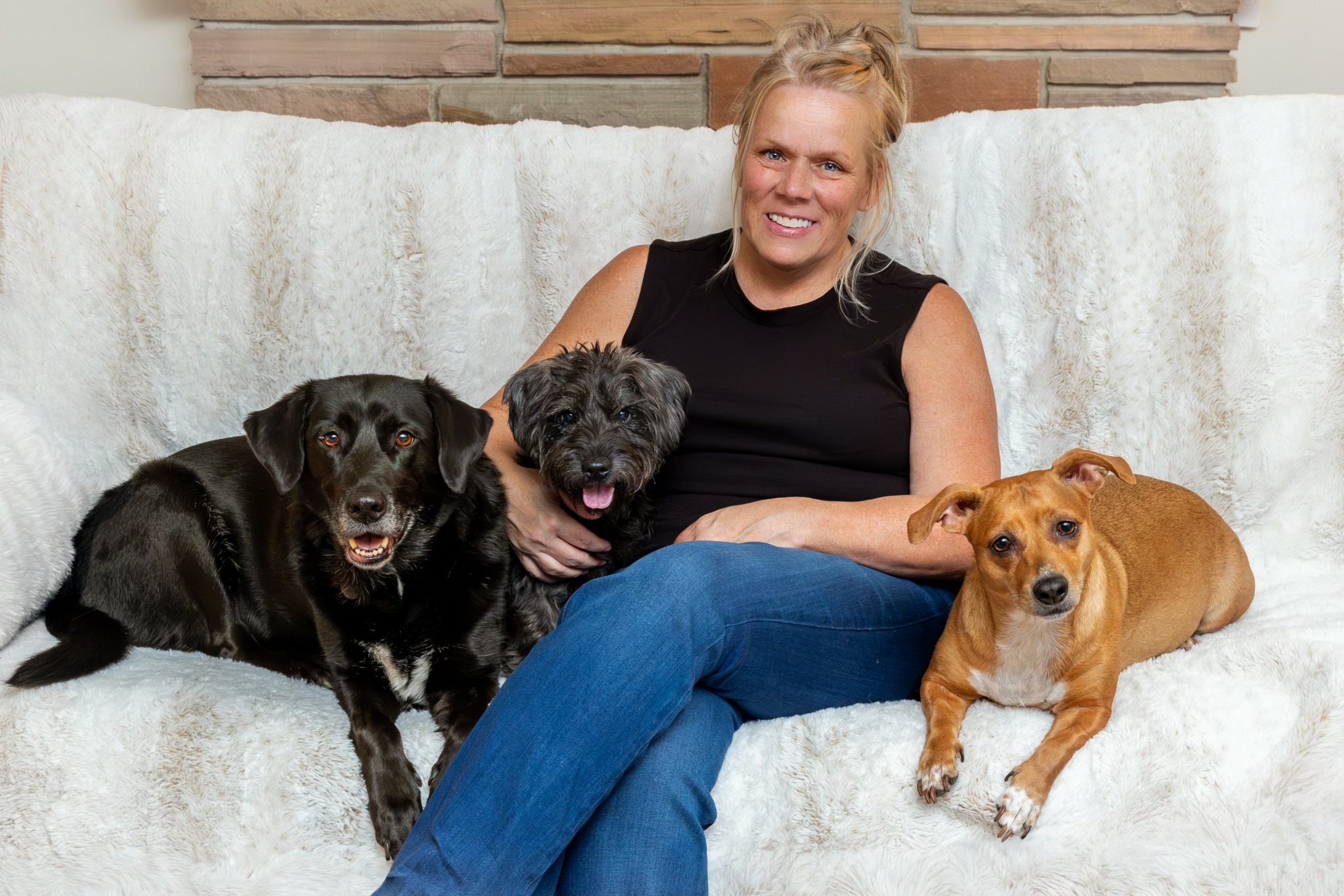We’re excited to introduce you to the always interesting and insightful Julie Lessard. We hope you’ll enjoy our conversation with Julie below.
Julie, thanks for taking the time to share your stories with us today We’d love to hear the backstory behind a risk you’ve taken – whether big or small, walk us through what it was like and how it ultimately turned out.
My journey in animal rescue started back in 2011. I didn’t know where it would lead, I just knew I wanted to help. I jumped in, volunteering anywhere I was needed and learning every piece of the rescue process. I said yes to it all, the good, the messy, and the moments that teach you the most. Over time, I realized that rescue isn’t just about saving animals; it’s about connection, trust, and giving both animals and people the tools to succeed.
For a long time, rescue work has been centered almost entirely on the animals, and while that’s understandable, it sometimes makes the people who love animals feel unwelcome. The strict rules and judgments meant to protect animals sometimes discouraged good adopters from even trying. We’ve worked hard to change that by focusing on education, empathy, and building trust with adopters.
When we restructured our placement and adoption teams, we built everything around the idea of “Adopters Welcome.” It’s a mindset that focuses on education and partnership, meeting adopters where they are, listening to their needs, and working together to find the right fit. It’s not about lowering standards; it’s about breaking down barriers and offering support so more animals can find homes that truly last.
Taking risks in rescue doesn’t mean being careless, it means being open to change, learning, and growth. The animal’s best interests drive every decision we make, and one of the best ways to serve them is to build trust with adopters. When people feel supported and respected, they stay connected, share success stories, and come back to adopt again, creating a ripple effect that saves even more lives.
For me, compassion for people is compassion for animals. Welcoming adopters, empowering them, and trusting in the human-animal bond is what truly helps our animals thrive.

Awesome – so before we get into the rest of our questions, can you briefly introduce yourself to our readers.
I mentioned this a bit earlier, but before 2011, I honestly didn’t know much about animal rescue. I had always adopted my dogs from the humane society, but the world of independent rescue wasn’t really on my radar. Around 2010, social media (especially Facebook) helped rescue work start gaining significant visibility, and that’s when my path began to shift.
After moving to Princeton in 2010, I kept finding loose dogs in my neighborhood. One day, I came across a dog wearing a Ruff Start Rescue tag. I called the number, spoke with the founder and executive director, and with a quick description of the dog, we were able to reunite them with their owner. That experience sparked something in me. It piqued my curiosity and inspired me to learn more about rescue work, and particularly about Ruff Start Rescue.
From there, I dove right in. I did everything from organizing dog food on the shelves to sitting in on any committee meeting I could, just to learn more about how this fascinating nonprofit worked. I started fostering, took on volunteer roles overseeing other fosters, and eventually stepped into volunteer management positions.
At the time, I was working a corporate job that didn’t fill my cup. So when the executive director offered me a part-time position, I jumped at the opportunity. I left my corporate job, started a small residential cleaning business to make ends meet, and devoted the rest of my time to rescue work.
Back then, having paid roles in animal rescue was almost unheard of. Most people believed it should all be done as a volunteer effort, and 100% of the profit should go back to the animals. But Ruff Start was different. The leadership recognized that to grow and sustain our impact, we needed to build a dedicated, professional team.
I was fortunate to be part of that early shift toward a more structured, sustainable rescue model.
About Ruff Start Rescue
Ruff Start Rescue is an extraordinary foster-based 501(c)(3) companion animal rescue built on compassion, collaboration, and community. Our mission extends across Minnesota and into southern states where stray pet overpopulation is a serious issue. We rescue and rehabilitate animals who have faced neglect, abandonment, and uncertainty.
Every day, our work is powered by dedicated volunteers, fosters, and supporters who come together to save lives and make lasting change.
Our vision is simple: a world where every companion animal has a safe, loving home—and every family has the knowledge and resources to give them the life they deserve.

Any advice for managing a team?
Building a strong rescue team really comes down to people feeling valued and connected. Rescue work is incredibly rewarding, but it can also be emotional and demanding. For me, it’s all about leading with authenticity. Being transparent, approachable, and willing to jump in alongside the team. I try to listen more than I talk, celebrate the small wins, and make sure everyone knows their efforts matter. Sometimes it’s the simple “thank you” or “I see how hard you’re working” that makes all the difference.
At Ruff Start Rescue, we focus on communication, collaboration, and care for our team as much as for our animals. We’ve built a culture where people feel safe giving feedback, sharing ideas, and learning from one another. We know the work can be heavy, so we also make space for laughter, mental breaks, and connection. Supporting our team’s well-being isn’t just good for morale; it’s what keeps our mission sustainable and our impact strong.

How did you put together the initial capital you needed to start?
Honestly, what’s been just as impactful is how we’ve built Ruff Start Rescue from pure passion and community support. We’ve always relied solely on grants and donations; there’s no government funding for foster-based rescues.
I still remember our early days in a small office (maybe 1,000 square feet) with a few shelves of dog food, some supplies, and one tiny public bathroom. We hosted transports there with 20+ animals, cleaned kennels, and sometimes even bathed dogs in the sink. It was chaotic but full of heart. We always made do with what we had and weren’t afraid to ask for what we needed.
When we needed something as simple as toilet paper or paper towels, we’d post on Facebook, and like magic, donations would pour in. Those experiences taught us the power of storytelling. By sharing the real, everyday needs of rescue, from cleaning supplies to transport vehicles to veterinary care, we invited people to be part of the mission in ways that mattered to them.
The truth is, the world is full of people who want to give; some wish to fund life-saving medical care, others just want to drop off a case of bleach or a roll of paper towels. Both make a difference. The moral of the story? Don’t ever be afraid to ask. The worst that can happen is someone says no, and most of the time, they’ll surprise you by saying yes.
Contact Info:
- Website: https://ruffstartrescue.org/
- Instagram: https://www.instagram.com/ruffstartrescuemn/
- Facebook: https://www.facebook.com/ruffstart/
- Linkedin: https://www.linkedin.com/company/ruff-start-rescue/
- Twitter: https://x.com/ruffstartrescue
- Youtube: https://www.youtube.com/user/RuffStartRescue
- Other: https://www.tiktok.com/@ruffstartrescue





